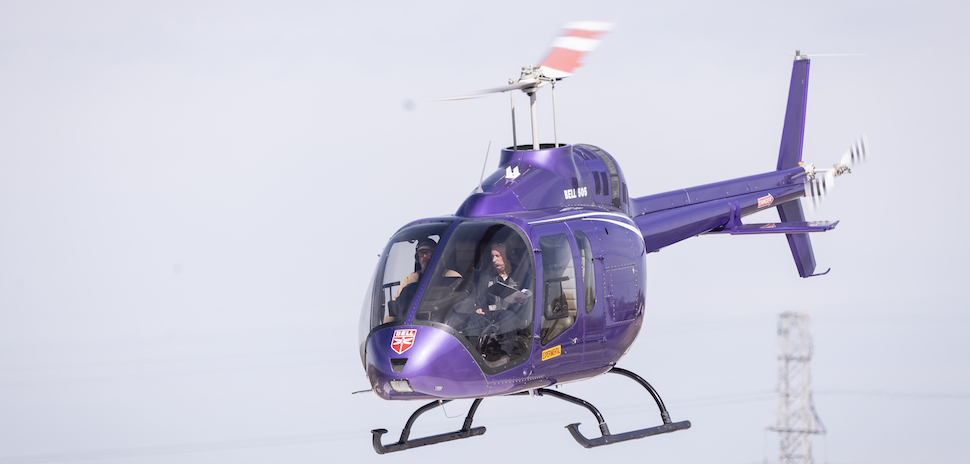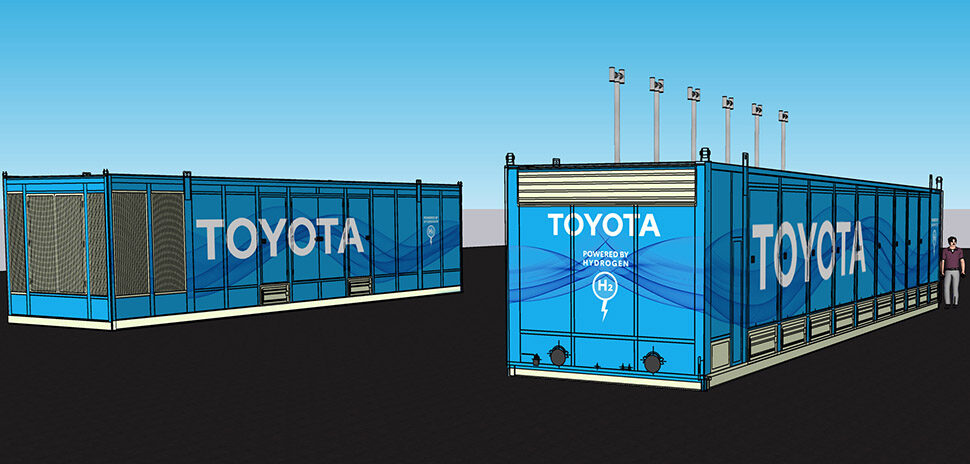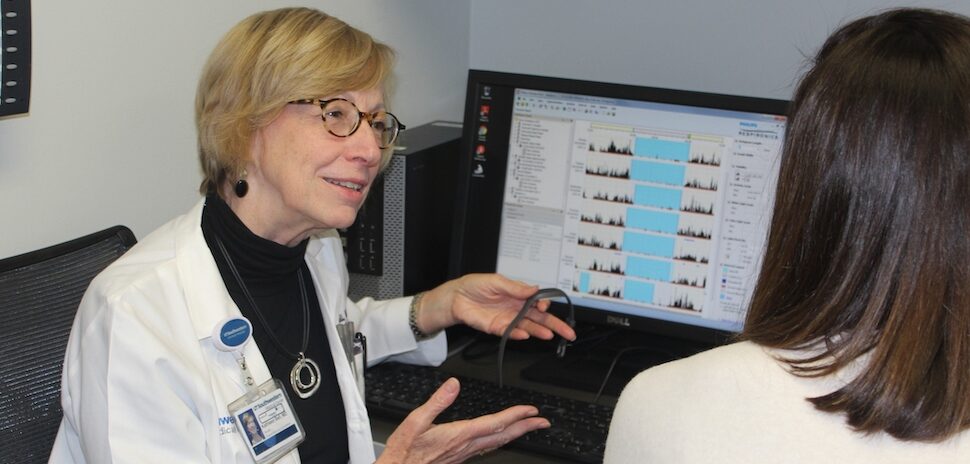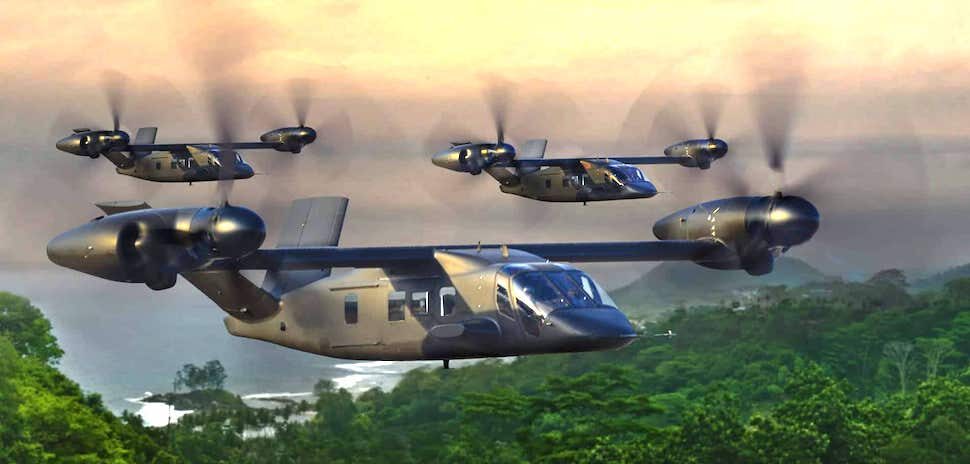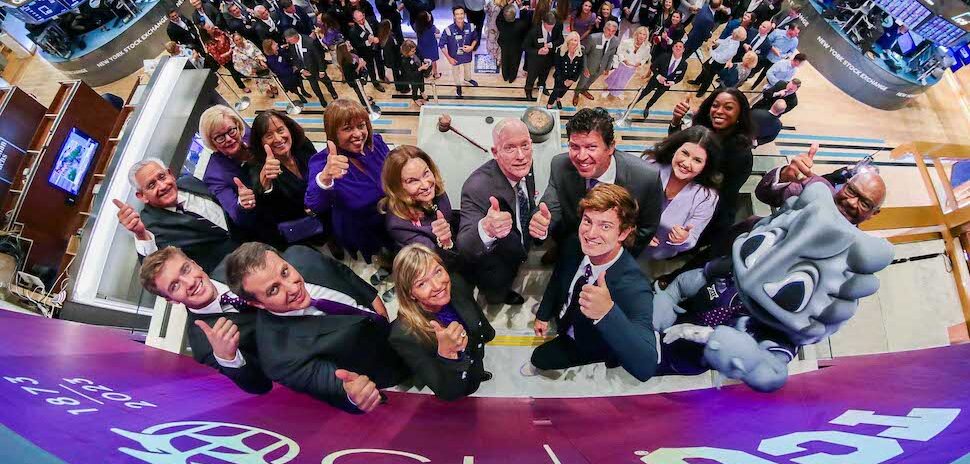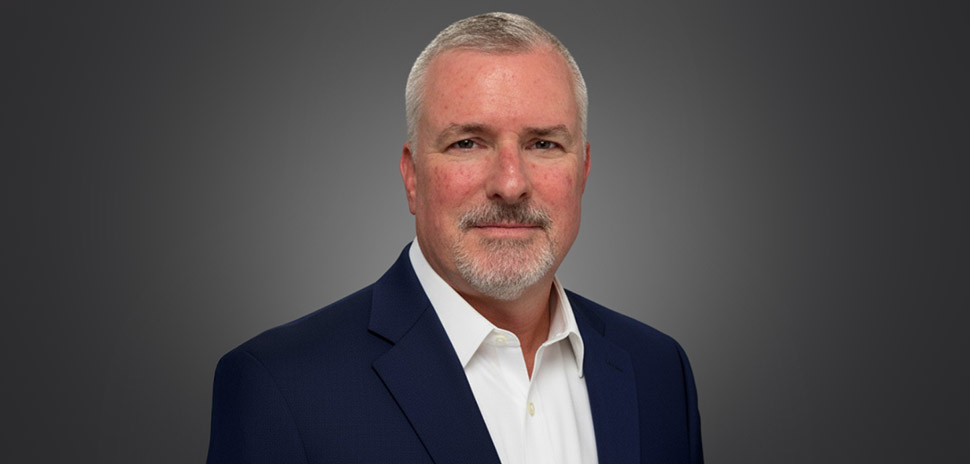Choppers take off all the time without stirring up a fuss. But a recent test flight by a Bell 505 from Fort Worth-based Bell Textron made history—and could advance a push to make helicopter flights more sustainable and carbon-friendly.
The five-seat Bell 505 completed the world’s first flight fueled solely by 100% Sustainable Aviation Fuel (SAF)—using a recipe of used cooking oil, other bio-based feedstocks, and renewable plant sugars.
To pull off the record flight, Bell teamed up with Safran Helicopter Engines, SAF fuel maker Neste, GKN Aerospace, and Virent Inc.
‘A monumental achievement for sustainability and decarbonization’
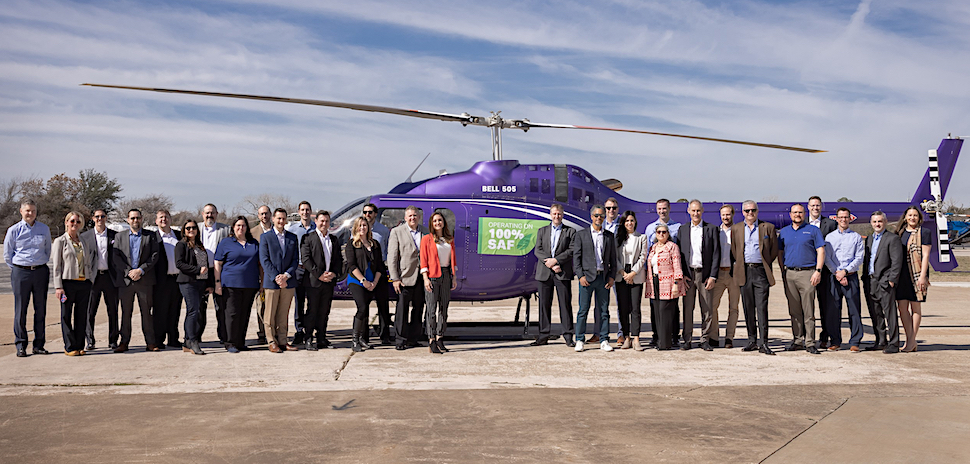
The teams behind the historic flight pose with the Bell 505. [Photo: Bell Textron]
Michael Thacker, EVP of commercial business at Bell, called the flight “a monumental achievement for sustainability and decarbonization in the rotorcraft industry.”
“Showcasing a single engine aircraft’s flight capabilities with 100% SAF signals Bell’s commitment to alternative fuel usage and builds on its sustainability practices in its flight operations,” Thacker added in a statement.
Cooking up sustainable fuel
The fuel used in the flight came from Finland-based Neste and Wisconsin-based Virent, which collaborated to blend, test, and deliver the SAF as a 100% “drop-in fuel.” The tricky part? Besides blending the bio-based feedstocks, they needed to come up with a component called “aromatics,” which is required to meet aviation fuel specs and is traditionally petroleum-based.
But Virent makes an aromatics component from renewable plant sugars. When it was added to Neste’s “neat” SAF, the Bell 505’s 85-gallon tank was filled with 100% sustainable fuel—not a drop of petroleum needed, and no engine modifications needed either, Bell said.
‘Decarbonizing’ the helicopter industry
Safran Helicopter Engines manufactured the Arrius 2R engine on the Bell 505. The company worked with GKN Aerospace to conduct “thorough testing” on both the engine and the fuel system components.
Valentin Safir, EVP of programs for Safran, called SAF “one of the key pillars in our strategy to decarbonize the helicopter industry.”
“Our engines are certified to operate on up to 50% SAF and our objective is to certify in the coming years the use of 100% SAF, which can potentially result in carbon lifecycle emissions reductions by up to 80%,” he said in the statement.
Supports Textron’s ‘Achieve 2025’ Sustainable Footprint goal
Bell’s own training fleet and demonstration aircraft currently use SAF in their operations, the company said. Bell conducts SAF testing in a dedicated Bell 505 with Safran Helicopter Engines.
The company added that the history-making flight “supports Textron’s Achieve 2025 Sustainable Footprint goal for 20% reduction in greenhouse gas emissions across the enterprise, among other sustainability initiatives.”
American, Southwest, Delta and others are pursuing sustainable fuels
Concerns about climate change have put sustainable fuels at the top of many airlines’ agendas. While cars and trucks are moving toward electric motors, the heavy weight of batteries for now precludes electrification from heavy planes in the skies. So SAF and hydrogen fuels are being rapidly developed and pursued.
Last October, Fort Worth-based American Airlines made a “strategic equity investment” in Los Angeles’ Universal Hydrogen Co., a startup developing a hydrogen fuel distribution and logistics network for the aviation industry in the U.S. and Europe.
Three months before that, American finalized an agreement with Colorado biofuel company Gevo, Inc. to purchase 500 million gallons of sustainable aviation fuel made from refined corn—a $2.75 billion deal, according to a Denver Business Journal report. The airline called that an important step toward its goal to replace 10% of its jet fuel with SAF by 2030.
Last June, Dallas-based Southwest Airlines invested in SAFFiRE Renewables, a startup that aims to turn corn waste into sustainable aviation fuel.
And as recently as Tuesday of this week, Delta Airlines and other companies started a $100 million venture capital fund to invest in sustainable aviation fuels, according to the New York Times.
![]()
Get on the list.
Dallas Innovates, every day.
Sign up to keep your eye on what’s new and next in Dallas-Fort Worth, every day.

